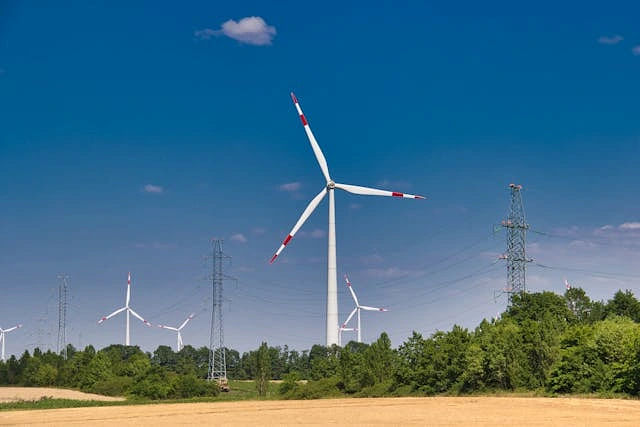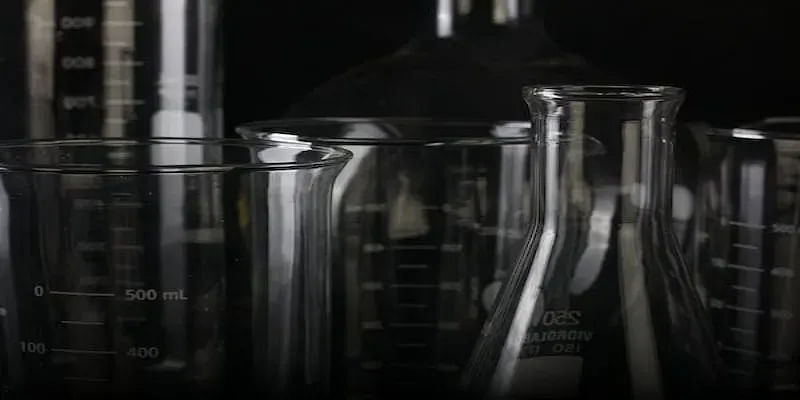Students confused between B.Sc Agriculture vs B.Tech Agricultural Engineering? A bachelor's degree in Agriculture will strengthen student's grasp in comprehensive understanding of the subject, while Agricultural Engineering will sharpen students abilities to carry out technical positions in the sector.
B.Sc Agriculture Vs B.Tech Agricultural Engineering - Which is Better? Students seeking a degree in agriculture often wonder whether to pursue a bachelor's degree in agricultural sciences or a bachelor's degree in agricultural engineering. B.Sc Agriculture provides students with a thorough understanding of agricultural practices and research. However, a B.Tech in Agricultural Engineering is an undergraduate degree program that focuses on agricultural studies and engineering concepts related to farm machinery, food production, and other processes that are related to agriculture.
The primary distinction between these two is that, while BTech Agricultural Engineering is a specialized degree program in an interdisciplinary specialization of Agriculture and Engineering, BSc Agriculture is a degree program in the broad field of agriculture. The course duration of BSc Agriculture is generally 3 years while BTech Agricultural Engineering is a 4-year degree program.
B.Sc Agriculture vs B.Tech Agricultural Engineering: Key Highlights
The key highlights of B.Sc Agriculture vs B.Tech Agricultural Engineering are mentioned below:
| Parameter | B.Sc Agriculture | B.Tech Agricultural Engineering |
| Full-Form | Bachelor of Science in Agriculture | Bachelor of Technology in Agricultural Engineering |
| Eligibility | 50% in 10+2 Science | 60% in 10+2 Science |
| Duration | 4 Years | 4 Years |
| Level | Undergraduate | Undergraduate |
| Admission Process | Entrance-based | Merit/Entrance-based |
| Higher Education Scope | M.Sc, M.Phil, MBA, Ph.D. |
ME, M.Tech, M.Sc, Ph.D. |
| Career Prospect | Agriculturalist, Agricultural Research Scientist, Agriculture Development Officer, Assistant Plantation Manager | Agricultural Engineer, Microbiologist, Project Manager, Head Green Keepers, Agricultural Managers, Research Analysts |
B.Sc Agriculture vs B.Tech Agricultural Engineering: Overview
B.Sc Agriculture is a four-year program that teaches its students various topics related to multiple farming methods and their benefits and the issues related to specific agricultural practices to increase productivity while reducing soil erosion and pollution.
Read More: B.Sc Agriculture
B.Tech Agricultural Engineering is a 4-year undergraduate course that teaches its students about agricultural studies and engineering concepts like food production, farm machinery, and other agriculture-related processes. In addition, this course teaches the specialized agricultural engineering concept with in-depth theoretical and practical knowledge of agricultural concepts.
Read More: B.Tech Agricultural Engineering
B.Sc Agriculture vs B.Tech Agricultural Engineering - Eligibility Criteria
Eligibility criteria are essential because admission requirements differ between the B.Sc Agriculture program and the B.Tech Agricultural Engineering program. Therefore, to enrol in a course, you need to know the eligibility criteria. The minimum prerequisites of B.Sc Agriculture vs B.Tech Agricultural Engineering are mentioned below:
Eligibility Criteria of B.Sc Agriculture
The eligibility criteria for the course B.Sc Agriculture is listed below:
- Aspirants must have completed 10+2 from a recognized board with a minimum of 50%
- Students must have studied physics, chemistry, biology, and mathematics
- The aspirant must have studied the English language as a required language
- The age should be at least 17 years old
Eligibility Criteria of B.Tech Agricultural Engineering
B.Tech Agricultural Engineering's eligibility criteria are discussed below:
- Aspirants must have completed 10+2 from a recognized board with a minimum of 60% (55% for the reserved aspirants)
- Students must have Mathematics and Physics as their majors in class 12th with subjects like Chemistry/ Biology/ Biotechnology
- There are no age conditions imposed for pursuing this course
B.Sc Agriculture vs B.Tech Agricultural Engineering - Admission Procedure
Although both degrees are related to science and agriculture, the admission procedures for these courses differ. The contrast in the admission processes for B.Sc Agriculture vs B.Tech Agricultural Engineering is described further below:
B.Sc Agriculture - Admission Procedure
The admission process to pursue B.Sc Agriculture is listed below:
- Fill up the entrance exam admission form, either online or offline.
- Those who pass the cut-off will subsequently engage in online counselling.
- Then the admissions committee assigns candidates to institutions based on their academic achievement.
B.Tech Agricultural Engineering - Admission Procedure
The admission process to pursue B.Tech Agricultural Engineering is listed below:
- Visit the website and fill out the application form.
- Once the candidate is short-listed, attending group discussions and personal interviews is the last step.
Also Read on B.Tech Admission
B.Sc Agriculture vs B.Tech Agricultural Engineering - Entrance Exams
Admission to the best universities in India is based on the applicants' ratings in B.Sc Agriculture and B.Tech Agricultural Engineering entrance exams conducted by various organizations. A variety of entrance exams are available for B.Sc Agriculture vs B.Tech Agricultural Engineering, which are listed below:
B.Sc Agriculture - Entrance Exams
The entrance exams to pursue B.Sc Agriculture are listed below:
B.Tech Agricultural Engineering - Entrance Exams
The entrance exams to pursue B.Tech Agricultural Engineering are listed below:
B.Sc Agriculture vs B.Tech Agricultural Engineering - Benefits
There are several reasons to opt for either B.Sc Agriculture and B.Tech Agricultural Engineering. Given below are some of the benefits of pursuing either of teh courses to provide you with a better vision on B.Sc Agriculture vs B.Tech Agricultural Engineering:
Why Choose B.Sc Agriculture?
The benefits of pursuing B.Sc Agriculture are listed below:
- Agriculture is transforming into a more modern research and technological industry. Changes in agricultural structure, demographic changes in food production, new biotechnology technologies, and resource management strategies play essential roles in food production and management.
- Educational Diversity: Specializing in agriculture opens up a wide range of opportunities for students who want to pursue education tailored to their interests in this area.
Why Choose B.Tech Agricultural Engineering?
The benefits of pursuing B.Tech Agricultural Engineering are listed below:
- Agriculture's role in economic development: Agriculture is estimated to be up to four times more effective in reducing poverty than any other sector in the world. The world is now more dependent on agriculture than ever to feed both the rich and the poor, and without agriculture, no country in the world can survive and prosper.
- High demand for young graduates: Agriculture still has a lot of room for improvement. Young geniuses and tech geeks are in high demand to explore agriculture and help transform livelihoods and technology in this relatively developing sector.
B.Sc Agriculture vs B.Tech Agricultural Engineering - Syllabus
The syllabus of B.Sc Agriculture and B.Tech Agricultural Engineering courses differs and may vary with the institution. Given below is a list of the subjects for both courses to provide you with a better understanding of B.Sc Agriculture vs B.Tech Agricultural Engineering:
Syllabus of B.Sc Agriculture
The general syllabus of B.Sc Agriculture is listed below:
- Soil Microbiology
- Plant Breeding and Genetics
- Agricultural Economics
- Agronomy
- Plant Pathology
- Statistical Methods
- Post-Harvest Technology
Read More: B.Sc Agriculture Syllabus and Subjects
Syllabus of B.Tech Agricultural Engineering
The general syllabus of B.Tech Agricultural Engineering is listed below:
- Engineering Mathematics
- Chemistry
- Engineering Physics
- Mechanics of Solids
- Elements of Electrical Engineering
- Communication Skills
- Engineering Graphics
- Environment Science
- Computer Programming and Utilization
- Agriculture Engineering
- Thermodynamics
Read More: B.Tech Agricultural Engineering Syllabus and Subjects
B.Sc Agriculture vs B.Tech Agricultural Engineering: Career Scope
Before enrolling in these programs, students should consider the most crucial factor: their potential for a successful career. Some degrees have less choice than others, so students need to know that before deciding between B.Sc Agriculture vs B.Tech Agricultural Engineering:
Career Options after B.Sc Agriculture
There are numerous career and higher education opportunities available after B.Sc Agriculture, in both the public and private sectors. The career scope after B.Sc Agriculture is listed below:
- Farm Manager
- Horticulture/ Landscaping Manager
- Researcher
- Plant Breeder
- Crop Trial Officer
- Food Quality Manager
- Project Manager
Read More: B.Sc Agriculture Jobs and Scope
Career Options after B.Tech Agricultural Engineering
Many opportunities for employment and higher education are available after a B.Tech in Agricultural Engineering, both in the public and private sectors. The career scope after B.Sc Agricultural Engineering is listed below:
- Fertilizer Firms
- Agriculture Machinery Manufacturing Firms
- Food Products Processing and Manufacturing Firms
- Food Department
- Research Departments
- Dairy Boards (state-wise)
- Coir Board
Read More: B.Tech Agricultural Engineering Jobs and Scope
B.Sc Agriculture vs B.Tech Agricultural Engineering - Salary
Given below are the average salary packages and standard designations for B.Sc Agriculture vs B.Tech Agricultural Engineering:
Salary after Pursuing B.Sc Agriculture
The average salary and designations after pursuing B.Sc Agriculture are mentioned below:
| Designation | Average Salary |
| Senior Product Manager | INR 14 LPA |
| Agriculture Specialist | INR 4.4 LPA |
| Area Sales Manager | INR 5 LPA |
| Credit Manager | INR 4.3 LPA |
| Seed Officer | INR 5 LPA |
| Sales Associate | INR 9 LPA |
Read More: B.Sc Agriculture Salary
Salary after Pursuing B.Tech Agricultural Engineering
The average salary and designations after pursuing B.Tech Agricultural Engineering are mentioned below:
| Designation | Average Salary |
| Area Sales Manager | INR 9.2 LPA |
| Agricultural Engineer | INR 3.5 LPA |
| Administrative/Office Manager | INR 5.2 LPA |
| Senior Research Fellow | INR 4.1 LPA |
| Agriculture Officer | INR 5.1 LPA |
| Agriculture Water Quality Assistant | INR 7.4 LPA |
Read More: B.Tech Agricultural Engineering Salary
B.Sc Agriculture vs B.Tech Agricultural Engineering - Top Colleges of India
The best colleges are picked based on a variety of rankings that include the following: placement scenario, cost structure, faculty evaluations, infrastructure, and so on. The following are some of the best colleges for B.Sc Agriculture vs B.Tech Agricultural Engineering:
Top Colleges for B.Sc Agriculture
The top colleges to pursue B.Sc Agriculture are:
- GBPUAT, Pantnagar
- JAU, Junagadh
- Chandigarh University
- Shivaji University
- OUAT, Bhubaneswar
- Bharath University
- University of Agricultural Sciences
- Annamalai University
- Siksha 'O' Anusandhan University
- Kalasalingam University
Top Colleges for B.Tech Agricultural Engineering
The top colleges to pursue B.Tech Agricultural Engineering are:
- Kalasalingam University
- Aditya Engineering College
- RCET Chhattisgarh
- Vignan University
- Avanthi Institute of Engineering and Technology
- Centurion University of Technology and Management
- VIT Aligarh
- NDUAT Uttar Pradesh
- ABR College of Engineering and Technology
- Saroj Institute of Management and Technology
B.Sc Agriculture vs B.Tech Agricultural Engineering - Which One to Choose?
It is challenging to decide which course is better, as both offer different opportunities. If you are interested in farming methods and their benefits, you can go for B.Sc Agriculture. On the other hand, if agricultural engineering concepts like food production excite you, you should opt for B.Tech Agricultural Engineering.
Demand: Other sectors will face layoffs, but agriculture will never be one because "food" is a fundamental human need. On the other hand, young geniuses and tech nerds are also in high demand for researching agriculture and helping transform livelihood and technology in this relatively underdeveloped sector.
Career Expansion: B.Sc Agriculture and B.Sc Agricultural Engineering make an aspirant aware of the latest technologies and innovations developed to help agriculture, which helps the students in their career growth. Agriculture has become more critical than ever in feeding both the rich and poor globally, and it is the only sector of the economy that any country can thrive in.
Ultimately, both programs provide different results, so student should assess their interests and decide which course they want to go for.










